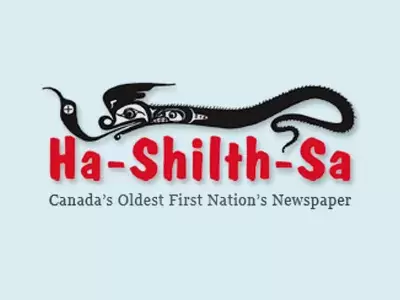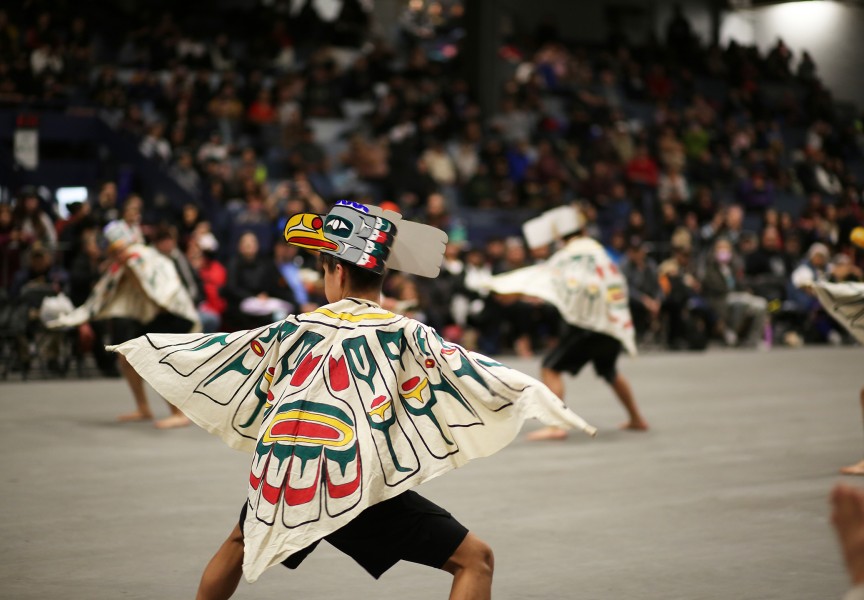B.C. First Nations weighed in with their opinions on Canada’s new aquaculture regime during the winter of 2011. Hosted by the First Nations Fisheries Council, a series of discussion sessions took place in six locations across the province between January and February. The following article provides information about the sessions.
Background
On Dec. 18, 2010, regulation of B.C.’s aquaculture industry shifted from a provincial to a federal responsibility. Canada will now regulate all shellfish and finfish farming activities through the Department of Fisheries and Oceans (DFO).
As part of this shift, Canada launched a process to reform B.C. aquaculture regulations. The reform process included developing draft Pacific Aquaculture Regulations, soliciting feedback over a two-week period, and meeting with various First Nations groups for input (including Nuu-chah-nulth Nations on Nov. 10, 2010).
Because the shift and its subsequent reforms will have an impact on First Nations communities, many B.C. First Nations expressed concern over the short comment period. Many Nations also expressed concern over the lack of consultation during the development of the draft regulations.
Aquaculture Working Group
In a separate process, the Fisheries Council and DFO formed an Aquaculture Working Group in May of 2010 to work on shared areas of interest related to aquaculture. The working group consists of 12 members, six appointed by the Fisheries Council, and six appointed by DFO.
The transfer and re-issuance of aquaculture licenses from the provincial government to the federal government triggered a legal obligation for Canada to engage, consult and accommodate First Nations. Since First Nations feel this obligation has not been met, the working group has become a new forum for voicing concerns and influencing the emerging management system.
Between January and March of 2011, the working group hosted six sessions to discuss the new management framework for BC aquaculture. Each session focused on a series of discussion questions and recommendations from the Fisheries Council.
Central to the discussions were questions about the new management model proposed by DFO. Currently DFO uses integrated fisheries management plans (or IFMPs) to manage fisheries in BC. These management plans outline First Nations food and ceremonial, commercial, and recreational fisheries activities. They also provide stock assessment information and harvest projections. DFO plans to model BC aquaculture after the integrated management model used in other fisheries.
First Nations who took part in the discussions had strong reservations about this management system. In particular, many First Nations find the system’s consultation and accommodation process inadequate. Under the system, First Nations have no authority to influence management decisions. First Nations also have difficulty understanding how DFO incorporates their input because the system doesn’t readily show how changes are made.
Throughout the discussions, a number of other themes emerged:
Recognition of Rights and Title: DFO must recognize and respect First Nations Title. This recognition and respect must be a fundamental principle in all aspects of planning and managing aquaculture.
Meaningful Consultation and Accommodation: Aquaculture farms located within First Nations traditional territories impact a Nation’s resource use. This includes using large amounts of ocean space to the exclusion of other activities, disrupting traditional food sources, and potentially harming ecosystem health. Aquaculture facilities also impact aboriginal title and rights (particularly fishing rights). DFO must consult with First Nations on all decisions that may result in infringement.
Area Based Management: First Nations would like to see aquaculture farms managed on a small, local scale. First Nations would also like to be involved in developing and enforcing this management regime.
Capacity: First Nations need adequate resources to take part in technical and policy processes. While most of the sessions were well attended, some were not due to a lack of the funding or technical capacity needed to participate.
Transparency and Information Sharing: First Nations would like to see improved communication between DFO and all First Nations. This includes more time to review materials before meetings.
Inclusive Science: DFO and First Nations must work together to design a research agenda that is collaborative and cooperative. Incorporating traditional ecological knowledge into management and policy was one common sub-theme.
Corporate Responsibility: DFO should support the negotiation of protocols, joint decision-making, and benefit sharing arrangements between First Nations and industry.
Monitoring and Enforcement: First Nations want rigorous enforcement, reporting, and monitoring of aquaculture activities and want to be involved in this enforcement, reporting, and monitoring.
Balance: First Nations want to balance the economic opportunities that aquaculture brings with their environmental impact.
The six community sessions were part of a long-term process to build capacity and share information around aquaculture. Participants asked the Fisheries Council to host a second round of discussions in the late spring or early fall of this year. Community members also asked DFO to engage communities bilaterally to discuss how this industry has the potential to impact Rights and Title. Through the Fisheries Council and the Aquaculture Working Group, parties will continue to meet and work towards a process that addresses First Nations concerns and requests.
For more information about the aquaculture discussion sessions, contact Don Hall, Uu-a-thluk Program Manager, at 250-724-5757 or Don.Hall@nuuchahnulth.org.







